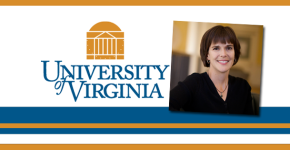
The linguistic landscape of the classroom is changing.
Along with her co-authors, Amanda Kibler, a professor of English education at The University of Virginia, chronicles the evolving nature of language & learning in this global age.
Amanda Kibler is an assistant professor of English education at the Curry School of Education at The University of Virginia. She was the principal investigator for study. Dr. Kibler’s research interests include adolescent second language acquisition, multilingualism, and classroom interaction in linguistically diverse settings. She received a PhD in Educational Linguistics from Stanford University in 2009.
Co-Authors
Nancy Deutsch
Associate Professor of Research, Statistics & Evaluation and Applied Developmental Science, Curry School of Education, University of Virginia
Dr. Deutsch’s research focuses on settings (particularly out-of-school contexts) and relationships that support positive youth development. She received her PhD in Human Development and Social Policy from Northwestern University in 2004.
Valerie Futch
Postdoctoral Fellow at Youth-Nex, the UVa Center to Promote Youth Development
Dr. Futch focuses on understanding responsive contexts that support the agency of youth in their own development, such as important youth-adult relationships and out-of-school time programs. She received her PhD in Psychology from The Graduate Center, City University of New York in 2011.
Lauren Molloy
Postdoctoral Research Associate at Youth-Nex, the UVa Center to Promote Youth Development
Dr. Molloy’s research focuses on understanding how peer relationships shape adolescent development and refining and applying cutting-edge statistical methods (such as social network analysis) to advance understanding of peer processes. She received a Ph.D. in Human Development & Family Studies from Pennsylvania State University in 2012.
Modern Language Learning
![]()
Youth in the United States are increasingly bringing diverse languages and cultures into classrooms, but they present teachers, administrators, policymakers, and others interested in education with a challenging opportunity: As our society becomes more multilingual and multicultural, how should schools respond?
We live in a global age, and it’s vital to support youth in becoming active global citizens. Educators thus have to consider the linguistically diverse society in which their students are and will be living.
Understanding classroom conditions under which students from all language backgrounds can learn with and from each other is an important step in preparing students for that world.
In our study, my colleagues Nancy Deutsch, Valerie Futch, Lauren Molloy, and I focus on understanding how linguistic diversity in a classroom can be leveraged to support the learning of all students. We will spend three years looking at 35 middle school classrooms, in which students who speak another language at home and who are frequently called English language learners, or emergent bilinguals, learn alongside fluent bilingual students and students who only speak English at home. This linguistic diversity is common now and will be even more typical in the classrooms of tomorrow. Given the history of uneven success in educating emergent bilinguals in this country, identifying promising practices in such classrooms is critical.
Specifically, we are looking for how instruction, teacher-student interactions, and peer interactions in and outside of the classroom fit together to support the language and academic development of emergent bilingual students and their peers. Our hypothesis is that engaged teachers who actively support the development of integrated, linguistically diverse peer networks in the context of rigorous and language-rich tasks will bring academic and linguistic benefits for all students.
And although educational and language learning theories support our ideas, they are yet to be tested in real classrooms. We look forward to exploring these questions and sharing our findings with schools, teachers, and other educational researchers.
Read more: Education Week: ELLs and Their Peers: What They Teach Each Other in the Classroom

Comments
2 responses to “Amanda Kibler, University of Virginia – Modern Language Learning”